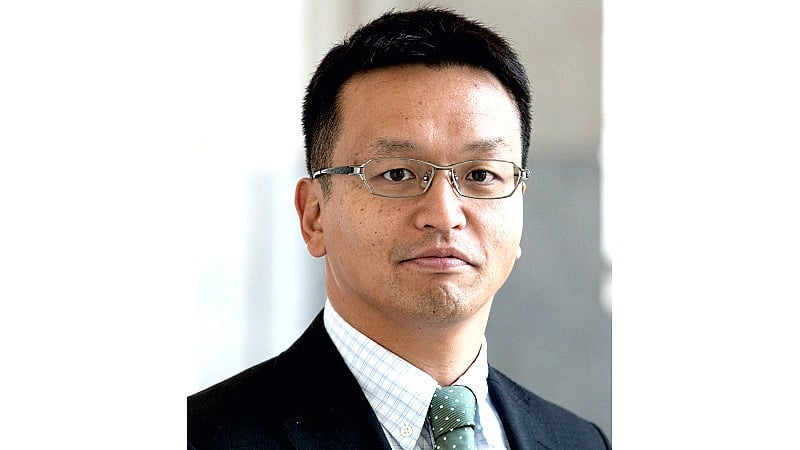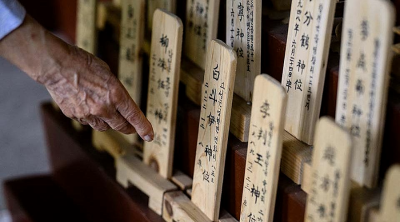
North Korea went ahead with an intercontinental ballistic missile (ICBM) test this spring.
They were still firing missiles before this, but it was the first ICBM since November 2017, and they themselves announced that they were suspending tests in April 2018.
In January 2021, General Secretary Kim Jong-un issued a major call for “bolstering the defense capabilities” at the Congress of the Workers’ Party of Korea (WPK), which is held once every five years.
The core of that is nuclear and missile development, and while he spoke rather abstractly in January 2022, it was suggestive of restarting the ICBM tests.
While the term “American Empire” was revived after a long hiatus to accommodate US-North Korean negotiations, there was no mention of “denuclearization.”
The interactive mode of the Trump administration has wholly become a thing of the past.
Noteworthy is that the Kim Jong-un administration is decisively carrying out its words on weapon development.
Now that the supreme leader has issued a concrete order on bolstering military power, weapons tests will definitely be carried out in accordance with their own development schedule.
We should assume that these missile tests have complex aims. It goes without saying that the first aim is to ensure US deterrence.
North Korea fired an ICBM at a high angle on March 24 and achieved a lofted trajectory to reduce the distance, but its maximum altitude and time in the air were new records, sporting a range that includes all of the United States in case of a regular trajectory.
At the very least, it appears to be one of the biggest in the world, demonstrating that North Korean military technology is steadily developing.
The United States has strengthened its economic sanctions against North Korea, but if the weapons development keeps going ahead, the United States will no longer be able to turn a blind eye, thus turning North Korean missiles into a diplomatic card.
This is the second aim. The current Kim Jong-un administration has displayed a stance of emphasizing both bolstering military power and developing the economy, so they are doubtlessly looking for the timing to restart negotiations with the United States to relax sanctions.
Nothing has changed with regard to the policy of “preparing for both dialog and conflict” and “responding to a constantly changing international environment” as announced in 2021.
However, the Biden administration does nothing but harshly criticize North Korea. Because of this, North Korea expects that it will take some time before US-North Korea negotiations are restarted, and so they are ready for a “protracted war.”
This year is only the second year of the “five-year plan for weapon systems development,” so there are concerns that North Korea’s cards will only become more diverse and more advanced as time goes on.
From the perspective of the Kim Jong-un administration, it would be great if the weapons tests motivate the United States to compromise, and even if they do not, they would be able to strengthen their military power.
The ICBM was fired against a background of years of economic sanctions and economic difficulties from the closing of international borders as a form of pandemic prevention.
This will impose hardships on the population, but it is also a way for the Kim Jong-un administration to show the steady progress made in the military area.
Korean Central Television (KCTV) has reported on the test with unprecedentedly dramatic flair, praising Kim Jong-un’s leadership.
This is the third aim of pushing forward with the weapons development. Nuclear weapons and missiles are held up as Kim Jong-un’s accomplishments and are thought to enhance national prestige.
The lesson North Korea has learned from the situation in Ukraine is that they need enough deterrence to prevent a great power from invading them.
Kim Jong-un has spoken of “lessons from the countries of the Middle East” as the reason for North Korean nuclearization.
More concretely, this refers to how Libya’s Kadafi regime finally suffered military intervention from NATO because they lost the deterrence of nuclear weapons after giving up their nuclear weapons development program in exchange for the lifting of economic sanctions.
The situation in Ukraine now is a Russian invasion rather than an attack from NATO and the “American Empire,” but the logic is the same in that a small country needs to have nuclear weapons to protect itself from military attacks by great powers.
Nonetheless, the aggressor is Russia, a friendly state, and North Korea is on Moscow’s side, for example by joining Belarus in voting against resolutions critical of Russia in the UN General Assembly.
They are probably counting on the protection of Russia as a permanent member of the UN Security Council, even if nuclear tests were to strain China-North Korea relations.
A key is whether the Xi Jinping administration, which is turning a blind eye to North Korean ICBMs while being clearly against nuclearization, is able to restrain Pyongyang.
(Atsuhito Isozaki is Professor at Keio University, Japan.)
ADVERTISEMENT
ADVERTISEMENT








































